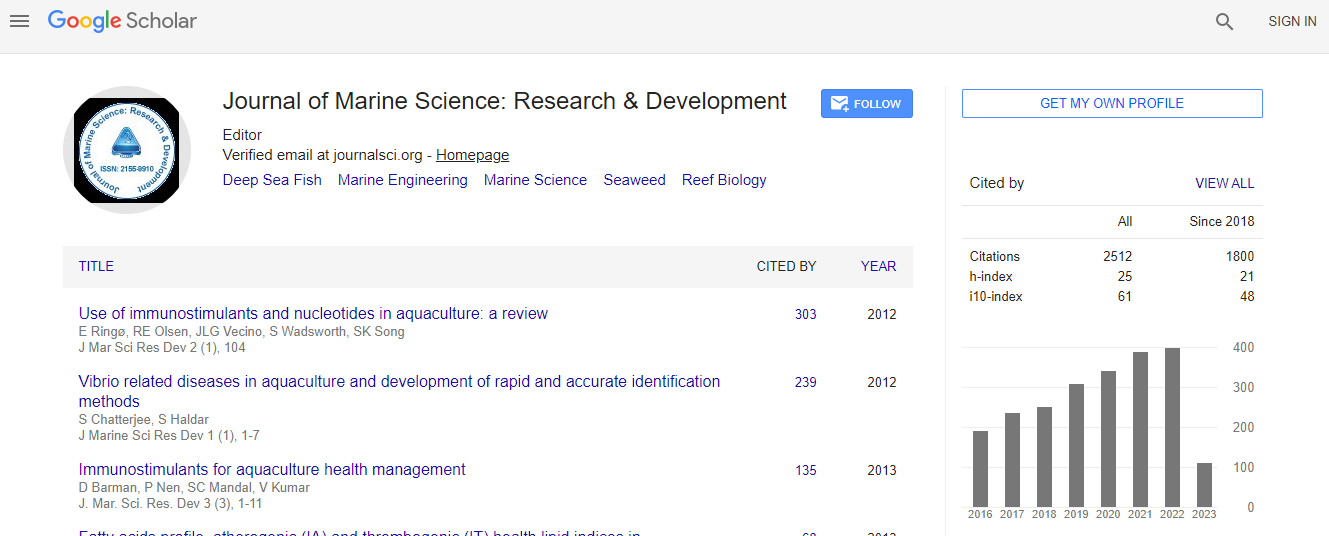Research Article
Effects of Processing Methods on the Value of Beche-de-mer from the Fiji Islands
Ravinesh Ram1*, Roveena Vandana Chand2 and Paul C. Southgate11Centre for Sustainable Tropical Fisheries and Aquaculture, College of Marine & Environmental Sciences, James Cook University, Townsville, Queensland 4811, Australia
2School of Biological and Chemical Sciences, Faculty of Science Technology and Environment, University of the South Pacific, Suva, Fiji Islands
- *Corresponding Author:
- Ravinesh Ram
Centre for Sustainable Tropical Fisheries and Aquaculture
College of Marine & Environmental Sciences
James Cook University, Townsville, Queensland 4811, Australia
Tel: +6799362543
E-mail: ravinesh.ram@my.jcu.edu.au; ravineshram@gmail.com
Received date: September 10, 2014; Accepted date: October 27, 2014; Published date: October 29, 2014
Citation: Ram R, Chand RV, Southgate PC (2014) Effects of Processing Methods on the Value of Bêche-de-mer from the Fiji Islands. J Marine Sci Res Dev 4:152. doi:10.4172/2155-9910.1000152
Copyright: © 2014 Ram R, et al. This is an open-access article distributed under the terms of the Creative Commons Attribution License, which permits unrestricted use, distribution, and reproduction in any medium, provided the original author and source are credited.
Abstract
Sea cucumber harvesting, processing into bêche-de-mer (BDM) and exporting had been an important marine commodity trade for over two centuries. Sea cucumber trading has also become an important export earner for the Fiji Islands and a source of income generation for coastal communities involved in this trade. This study showed that the processing techniques being utilized for BDM in Fiji have changed little since they were developed in the 1800’s. Fijian BDM (18 commercial species) is generally categorized as ‘grade B’ in Asian markets because of relatively poor product quality. The quality and value of bêche-de-mer are significantly impacted by negligence during processing by sea cucumberand marine products agents. The loss of value due to poor quality of the final dried product in Fiji ranges from 10% to 50%. Sea cucumber fishers in Fiji need to adopt improved processing techniques that support production of better quality product, improved yield and greater income.

